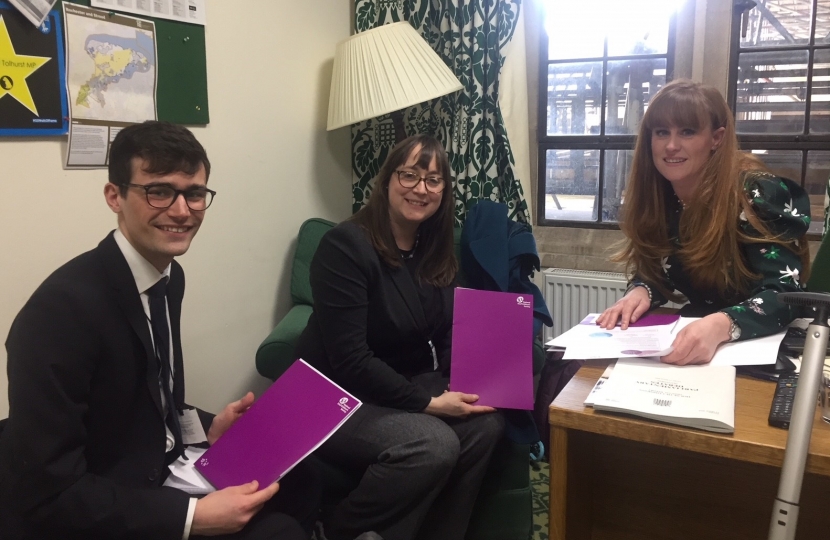
Following my speech during a debate last year on deafness, in which I told the story of my mum’s sudden hearing loss and struggle to get the right cochlear implant, I have recently met with charities focussing on deafness.
Last week I met with the National Deaf Children’s Society (NDCS), a leading charity dedicated to creating a world without barriers for deaf children and young people. The NDCS provide services supporting families with deaf children from birth to 25, with those first early years being the most important in ensuring a deaf child can adapt to life ahead.
On top of this, NDCS campaign on a number of areas that I am pleased to support. Their latest campaign includes the Right to Sign. British Sign Language (BSL) is a recognised language and many deaf young people use it every day, but can't study it at GCSE. NDCS’s Young People’s Advisory Board (YAB), a group of 16 deaf young people from all over the UK, are campaigning for a BSL GCSE so they can learn it at school.
More information can be found here: http://www.ndcs.org.uk/help_us/campaigns/our_current_campaigns/england/right_to_sign.html
It was also a please to meet with Auditory Verbal UK, a specialist programme that equips parents and carers with the skills to develop their child’s listening and spoken language skills. It is a play-based approach delivered by highly specialist Auditory Verbal Therapists. Many families are unaware of how Auditory Verbal therapy can help young deaf children with hearing aids and cochlear implants to develop and reach their full potential.
AVUK is working to equip health and education professionals in the NHS and Local Authorities with the skills in Auditory Verbal practice so that every family with a deaf child has the opportunity to access an Auditory Verbal programme close to where they live. 4 out of 5 children who spend on average 2+ years on our fortnightly programme achieve listening and spoken language skills on a par with their typically hearing peers. Most achieve this by the time they start school. Most are in mainstream schools. Many have additional needs over and above their hearing loss.
Given what happened to my mum and seeing her adapt to a sudden disability makes this an issue very close to my heart. I have always said deafness is the silent disability with too few people understanding the barriers it can have just because it may not be obvious.
That is why I am delighted to support deafness charities and lobby government to ensure local NHS groups can provide universal support, strengthen apprenticeships policy to help develop skills and to encourage more initiatives to support BSL and auditory verbal therapy.



